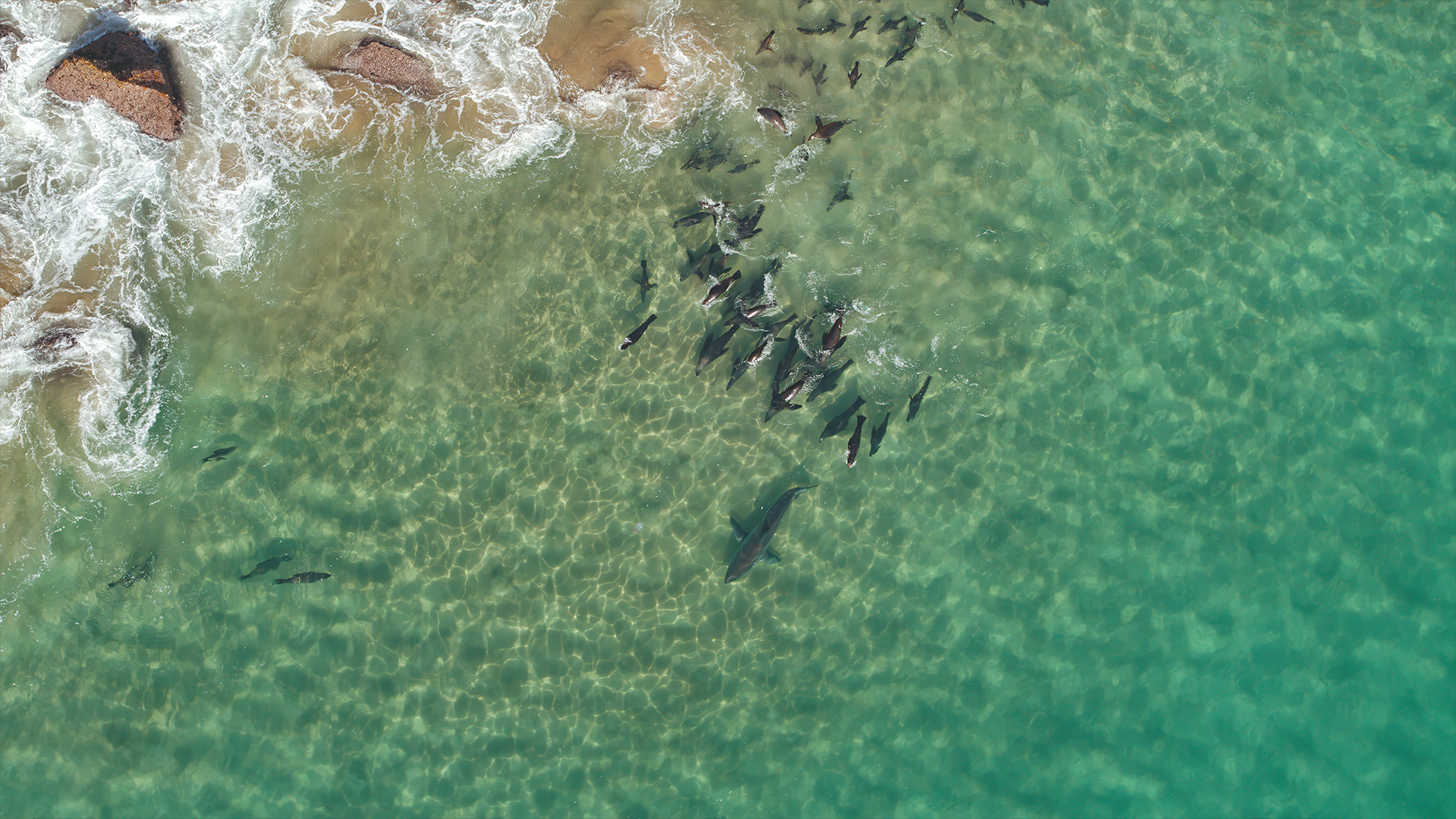Watch great white shark get mobbed by gang of seals in 'incredible and surprising' footage
Astonishing footage from Planet Earth III, which premieres Nov. 4 on BBC America and AMC+, shows a herd of seals fending off an attack by the world's most notorious predator off the southern coast of Africa.

Get the world’s most fascinating discoveries delivered straight to your inbox.
You are now subscribed
Your newsletter sign-up was successful
Want to add more newsletters?

Delivered Daily
Daily Newsletter
Sign up for the latest discoveries, groundbreaking research and fascinating breakthroughs that impact you and the wider world direct to your inbox.

Once a week
Life's Little Mysteries
Feed your curiosity with an exclusive mystery every week, solved with science and delivered direct to your inbox before it's seen anywhere else.

Once a week
How It Works
Sign up to our free science & technology newsletter for your weekly fix of fascinating articles, quick quizzes, amazing images, and more

Delivered daily
Space.com Newsletter
Breaking space news, the latest updates on rocket launches, skywatching events and more!

Once a month
Watch This Space
Sign up to our monthly entertainment newsletter to keep up with all our coverage of the latest sci-fi and space movies, tv shows, games and books.

Once a week
Night Sky This Week
Discover this week's must-see night sky events, moon phases, and stunning astrophotos. Sign up for our skywatching newsletter and explore the universe with us!
Join the club
Get full access to premium articles, exclusive features and a growing list of member rewards.
Spectacular footage captured off the southern coast of Africa shows a huge band of seals swarming and driving off a great white shark. The scene features in the first episode of the new documentary series "Planet Earth III."
South African fur seals (Arctocephalus pusillus) feast on massive shoals of fish that gather in nutrient-rich coastal waters. In the three-minute-long clip narrated by naturalist and presenter David Attenborough, a herd of seals clambers down jagged cliffs to reach the water and dives below the waves in search of food.
But in recent years, waters off the southern coast of Africa have also attracted unprecedented numbers of seal-hunting great white sharks (Carcharodon carcharias) — up to a dozen at a time on this particular stretch of coastline. The clip shows the great white sharks prowling clear waters of the Robberg Peninsula. The footage highlights just how fast these predators can accelerate to ambush their prey, reaching top speed with just five swipes of their tails. But it also shows how the seals are fighting back.
"Over the past two decades there has been an increased frequency of sightings of great white sharks in the area, likely as a result of the growing seal colony, but also possibly other factors that we're still trying to understand," Georgina Ward, the associate producer on the "Coasts" episode who directed the seals versus great white sharks sequence, told Live Science via email.
Aerial footage in the clip shows the sharks skirting the rugged cliff edge and driving the seals closer to the rocks, cornering them to make for an easier catch.
As one great white moves in for the kill, however, dozens of seals gather behind the shark and chase it back out to sea. More and more seals approach the shark from all sides and join the mob, eventually driving the huge predator away.
Get the world’s most fascinating discoveries delivered straight to your inbox.
"To see such a large and competent predator completely overwhelmed by its prey and swimming off into deeper waters [is] both incredible and surprising," Ward said. "It's not how you'd expect a shark-seal encounter to go. Very occasionally you'd get one shark that just wouldn’t give up and we'd watch and film it for 10 to 15 minutes just going up and down the cliff with a swarm of seals in tow. But most of the time once mobbing started, they didn't hang around."
Fur seal mobbing has been seen and studied in other parts of the world — but not with the intensity and consistency seen at Robberg Peninsula, Ward said.
"Until recently nobody had studied the mobbing behavior here, so it's hard to know exactly how long this population of seals has been doing it," Ward said, adding an adult male was first seen mobbing a great white shark in the area in 2000.
The mobbing behavior is an aggressive form of defense utilized throughout the animal world. "Sharks are ambush hunters, preferring to sneak up on their prey, usually from below. Most of the time the seals start mobbing the shark before it's even tried to predate them, meaning the sharks lose the element of surprise," Ward said.
Researchers still aren't sure exactly why this technique is effective. "Do the sharks give up because they know the seals can now all see them? Are the seals doing more to annoy them when they are in a mob," such as biting or making sounds? "There's still so much we don’t know about these interactions," Ward said.
"Planet Earth III" will be available to watch from Nov. 4 at 8pm ET/PT on BBC America and AMC+.

Sascha is a U.K.-based staff writer at Live Science. She holds a bachelor’s degree in biology from the University of Southampton in England and a master’s degree in science communication from Imperial College London. Her work has appeared in The Guardian and the health website Zoe. Besides writing, she enjoys playing tennis, bread-making and browsing second-hand shops for hidden gems.
 Live Science Plus
Live Science Plus











